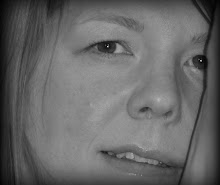The ceiling must have been a hundred feet high, and I was tiny, floating in an endless outer space of a cold green room. Everywhere I looked was institutional, antiseptic green: a color reserved for prisons and junior high schools and hospitals. And blinding sunlight poured in the windows. Except it couldn’t have been sunlight. Could it? It must have been the lights, as far away and as bright as the sun, because operating rooms don’t have windows. There were voices, but no faces. Voices that yelled from far away, but I knew they were talking to me because sometimes I heard my name. I couldn’t see clearly, could barely hear in the thin, electric air.
A cliché: I was too scared to cry. My naked little body shivered on the table, only a sheet covering me. But I couldn’t cry, or speak. I wanted to ask someone to hold my hand. But my tears and my voice were squashed back into me by the weight of the fear and the enormous space.
Earlier, in my room, they had made me take off all my clothes. “Can I keep my underwear?” I wanted to know. I would have felt safer with my underwear. “No,” the orderly said. So I lay on a bed, utterly naked, and he covered me with the sheet and some people came and pushed me to a freight elevator which took us up six flights to the operating room. I shivered the whole way.
Years later, when I was a nurse at the same hospital, we used that same freight elevator to transport dead bodies to the basement morgue. They were naked, too, covered only with a sheet. I used to wonder if they could feel the cold.
In the strange green operating room, a voice told me it was time to go to sleep. A mask was pushed down onto my nose and mouth, and I couldn’t breathe. I shook free, shook my head "no." It was shocking, how bad the mask smelled, how bad its air tasted: like rubber, like alcohol, like poison. Again the mask, and I did not want to breathe. I fought. “Count backwards from 100,” someone yelled, “and you’ll fall asleep before you get to one.” I didn’t want to, and shook my head again. But then I breathed the poison and counted because I was supposed to and because I was a good girl.
“100, 99….”
I made it to 93.
But they lied: it wasn’t like falling asleep. It felt violent, like my wakefulness was forced out of me, like my head was being held underwater. Ultimately I couldn’t have fought anymore, even if I had tried. I thought I was going to die, but I counted backwards like I was told.
While I lay unconscious in that operating room, my parents sat in the waiting room. They sat for too long, and they knew it. Something was wrong. They knew. When my surgeon finally did emerge, he looked their way, then shook his head and turned and walked away.
Something was wrong.
My father recently told me that he has always felt fortunate for the life he’s led. Except for that moment. When my doctor couldn’t face them, Dad said, it was the worst moment of his life. That, he said, made him question.
But the surgeon returned and explained. He didn’t understand what he had found inside of me. He didn’t know what to do. The tumor was trying to kill me. But he was afraid that by doing something, anything, he might kill me. So they took biopsies and closed me back up.
He couldn’t fix me.
Later, after I was sewn together, I fought to wake up. I was still shivering, I was vomiting, I was crying. I wanted my mom, and then she appeared through the anesthetic fog. I wanted my underwear, and the nurse laughed at my request, and then put them on me and I felt warmer. I slept again and the horrible poisonous medicine slowly evaporated from my body.
When I was a nurse there, twenty years later, I used to sneak away from my shifts in the ICU. Sometimes in the middle of the night I would visit the old operating room, long since abandoned and converted to a storage area. And I would sit in the corner on the cold tile floor and breathe deeply and try to turn time backwards. I tried to remember. I tried to listen. I looked for my terrified eight-year-old self in that eerie, deadly quiet space.
I never found her.
And because I never found her there, I started to wonder. Had I imagined the fear, the cold, the bewilderment? Could it really have been that bad?
A few years ago, I stumbled across a plain and frightened piece of my little girl self. I was sorting through papers from my childhood, and among my third-grade math worksheets and my eight-year-old's drawings, I found it.
It was a neatly folded note, written to my mother on the eve of my second hospitalization. Large, deliberate child's script, in bright blue marker, mistakes crossed out, with tear stains blotting some of the careful words.
“Dear Mommy,
I’m scared and don’t want to go to the hospital. Last time I was
really scared. I am scared this time, too.
Your Daughter,
Teresa”
When I read that, I knew. It had all been real. I had been as scared as I remembered. The note was a simple testament to how bad that first time had been.
And I didn't even know how much worse things would get.






(((Hugs...)))
ReplyDeleteNancy
That is a pretty powerful story. I hope to hear more in times to come.
ReplyDeleteBTW...to cheer you up I have something over at my blog for you today.